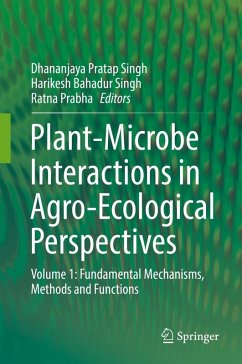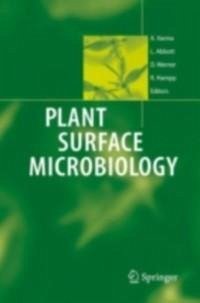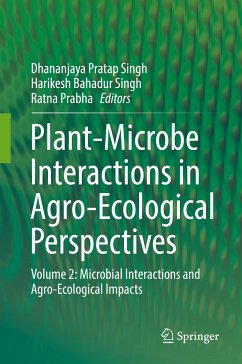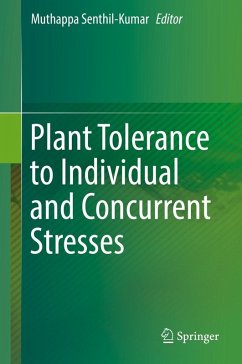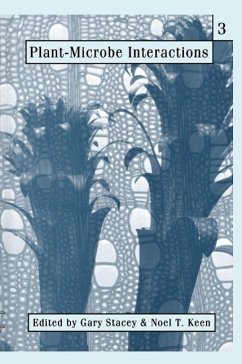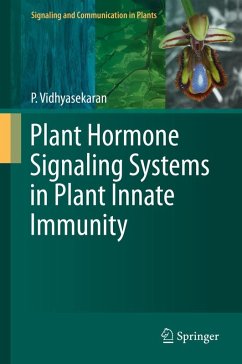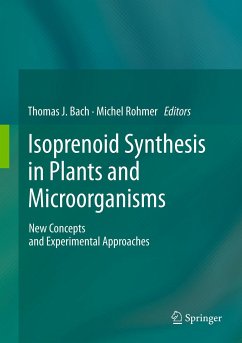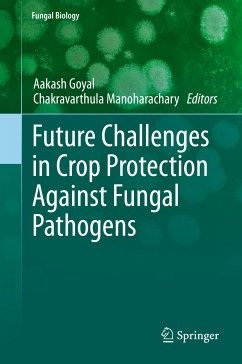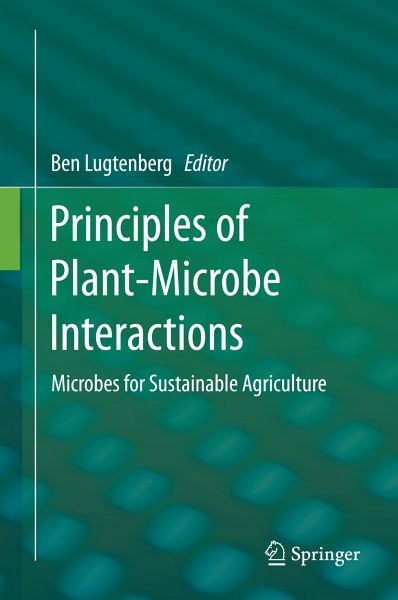
Principles of Plant-Microbe Interactions (eBook, PDF)
Microbes for Sustainable Agriculture
Redaktion: Lugtenberg, Ben
Versandkostenfrei!
Sofort per Download lieferbar
112,95 €
inkl. MwSt.
Weitere Ausgaben:

PAYBACK Punkte
56 °P sammeln!
The use of microbial plant protection products is growing and their importance will strongly increase due to political and public pressure. World population is growing and the amount of food needed by 2050 will be double of what is produced now whereas the area of agricultural land is decreasing. We must increase crop yield in a sustainable way. Chemical plant growth promoters must be replaced by microbiological products. Also here, the use of microbial products is growing and their importance will strongly increase. A growing area of agricultural land is salinated. Global warming will increas...
The use of microbial plant protection products is growing and their importance will strongly increase due to political and public pressure. World population is growing and the amount of food needed by 2050 will be double of what is produced now whereas the area of agricultural land is decreasing. We must increase crop yield in a sustainable way. Chemical plant growth promoters must be replaced by microbiological products. Also here, the use of microbial products is growing and their importance will strongly increase. A growing area of agricultural land is salinated. Global warming will increase this process. Plants growth is inhibited by salt or even made impossible and farmers tend to disuse the most salinated lands. Microbes have been very successfully used to alleviate salt stress of plants. Chemical pollution of land can make plant growth difficult and crops grown are often polluted and not suitable for consumption. Microbes have been used to degrade these chemical pollutants.
Dieser Download kann aus rechtlichen Gründen nur mit Rechnungsadresse in A, B, BG, CY, CZ, D, DK, EW, E, FIN, F, GR, HR, H, IRL, I, LT, L, LR, M, NL, PL, P, R, S, SLO, SK ausgeliefert werden.




